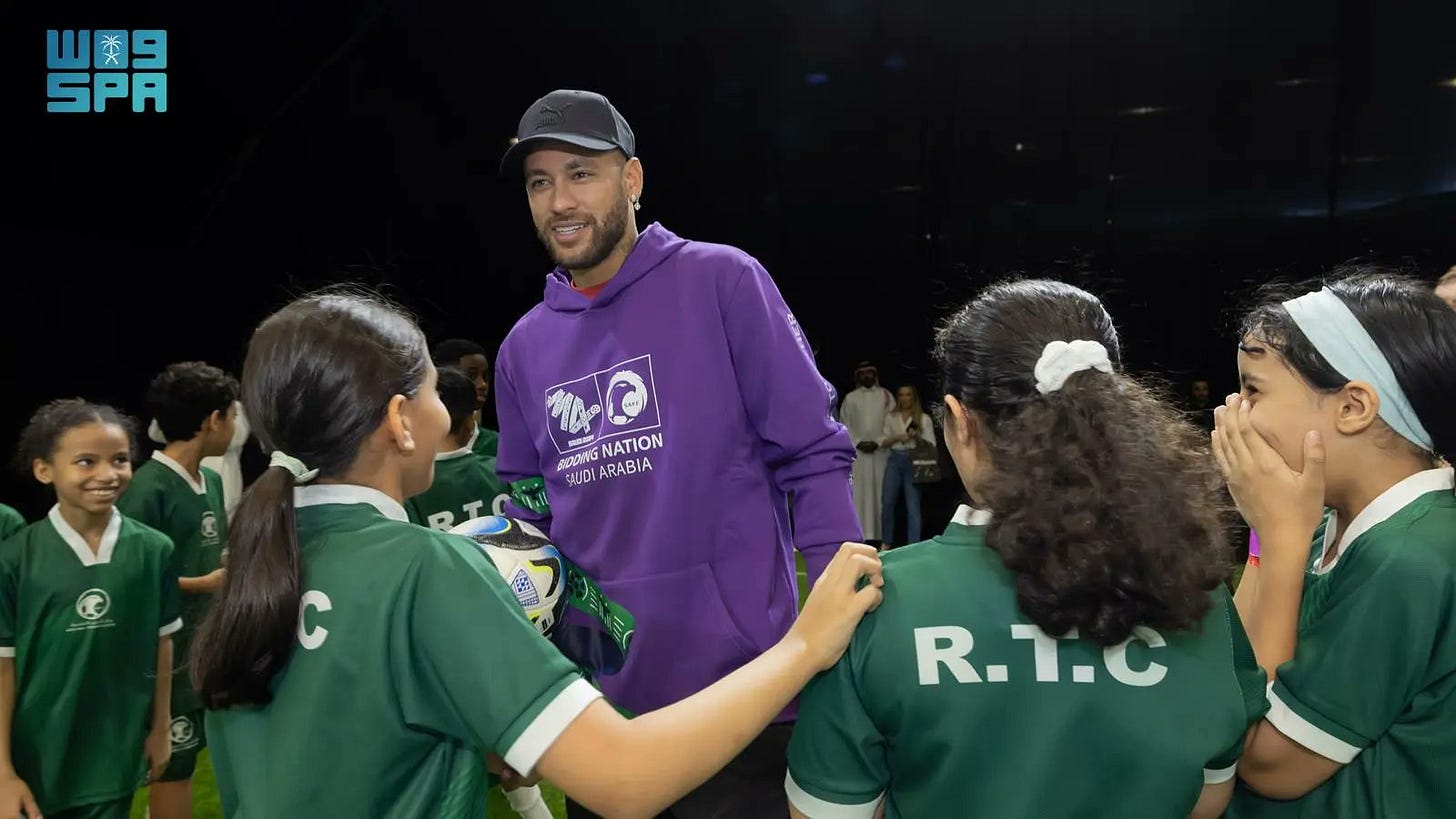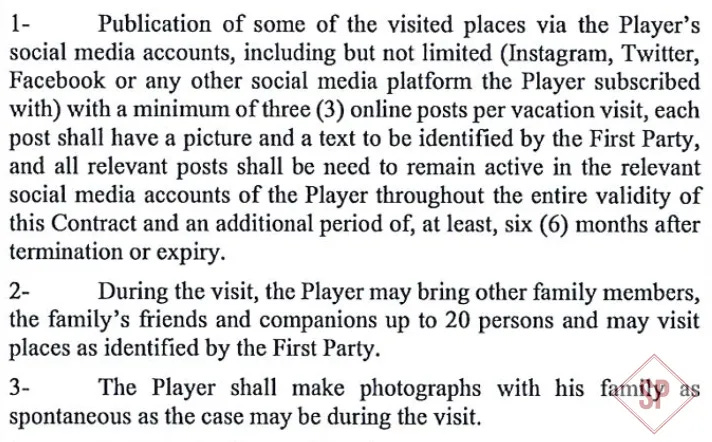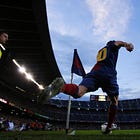Don’t trust Neymar
Much like Messi, Neymar’s contract with Saudi Arabia likely includes a non-disparagement clause, limiting his ability to speak openly about his experience and reducing him to a PR tool.

Welcome to Sports Politika, a media venture founded by investigative journalist and researcher Karim Zidan that strives to help you understand how sports and politics shape the world around us. Our mission is to offer an independent platform for accessible journalism that raises awareness and empowers understanding.
If you share this vision, please consider supporting us by joining our community and becoming a paid subscriber.
During a tour of the Saudi 2034 FIFA World Cup bid exhibition earlier this week, Brazilian football star Neymar expressed his full-throated support for the event, lauding the Kingdom’s readiness to host the world’s most watched sports event.
“I think the bid is one of the best projects I have ever seen in my life,” Neymar said during the visit, which featured interactive displays of the 15 stadiums envisioned for the tournament. “It has all the potential to be the best World Cup ever.”
Neymar went on to praise the Kingdom’s various proposals for the event, from planned accommodations, stadium infrastructure, and the enthusiasm of Saudi society.
“Everything in this bid is designed to serve football,” he said. “They are thinking about the players so that there are no long flights and travel times during the World Cup. This ensures easy movement between stadiums and hotels, giving players ample time to recover between matches and perform at their best.”
These quotes have since been repackaged across Saudi’s growing media landscape, including the Saudi Press Agency, the state-owned ksa.com and Arab News websites, among others. They help bolster Saudi Arabia’s image internationally, presenting a facade of reforms through celebrity endorsements in the lead-up to the 2034 World Cup, which the Kingdom is expected to win the rights to host.
Yet, how much of Neymar's World Cup endorsement was truly sincere? Likely, very little.
The 32-year-old Brazilian has lived in Riyadh since joining Al-Hilal—a Saudi Pro League side owned by the country’s Public Investment fund (PIF)—in August 2023. However, his tenure has been plagued with injuries, including an ACL tear that sidelined him for nearly a year. Nevertheless, that did not stop the Brazilian star from appearing in Saudi cologne commercials, as well as in Instagram posts dressed in traditional Saudi clothing for occasions such as Saudi national day.
It has since been revealed that Neymar is reportedly being paid more than $500,000 for each Instagram post promoting Saudi Arabia, drawing comparisons to Lionel Messi’s status as a well-paid Saudi pitchman.
Last year, Tariq Panja and I broke a story for The New York Times which revealed the details of Lionel Messi’s ongoing partnership with Saudi Arabia’s tourism authority — a deal valued at $25 million over three years, including publicized vacations in Saudi with his family, as well as a series of promotional material and regular social media posts.
However, Messi’s contract also included a non-negotiable condition for Saudi officials: Messi cannot say anything that might “tarnish” Saudi Arabia’s image.
Messi’s contract also offered some fascinating insight into specificity of the requests made by Saudi officials. This included a minimum number of photographs and “vacation posts” during a stay in the Kingdom, as well as requests that Messi “should make photographs with his family as spontaneous as the case may be during the visit.”
Neymar’s contract with Saudi Arabia likely includes some variation of this non-disparagement clause, limiting his ability to speak openly about his experience in the Kingdom and reducing him to little more than a tool for public relations.
For the past few years, Saudi Arabia has spent billions on professional sports: biannual World Wrestling Entertainment (WWE) events. The purchase of a Premier League football team. The world’s richest horse race. Flagship tennis tournaments. And even championship boxing matches.
By luring some of the world’s top sports leagues, as well as leading athletes like Cristiano Ronald and Rafael Nadal, Saudi Arabia is announcing itself as an essential hub for sports, entertainment, and tourism. It is a soft power strategy that helps presents the kingdom as a reformed nation and appealing destination for individuals and businesses alike.
However, this ambitious strategy is a double-edged sword: while athletes can use their platforms to promote Saudi Arabia, they can also use it to advance social issues or raise concerns about human rights abuses. By eliminating the latter under threat of litigation, the kingdom can preemptively protect itself from potentially embarrassing situations counteractive to its political aims.
When you see your favorite athletes—be it tennis legend Rafael Nadal, football stars like Neymar, or heavyweight giants like Francis Ngannou—praising Saudi Arabia as the future of sports, it’s best to take it with a hefty grain of salt.
Related Reading:
Sports Politika is a media platform dedicated to the intersection of sports, power and politics. If you like what you see, upgrade to a paid subscription ( or gift a subscription if you already have your own). We would appreciate if you could also like the post and let us know what you think in the comment section below.







